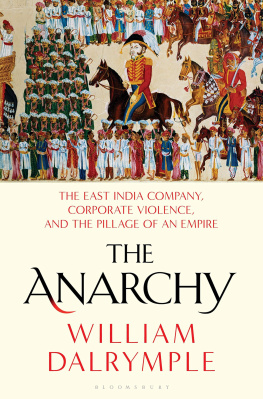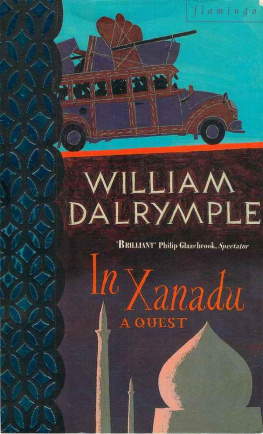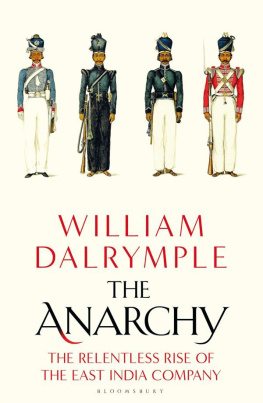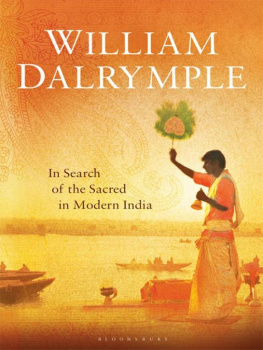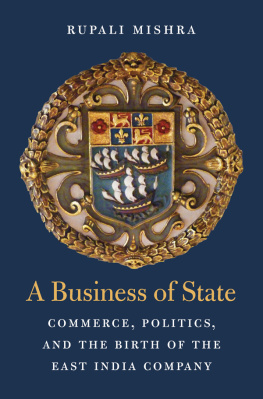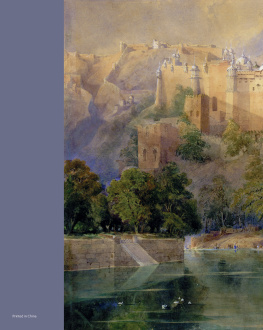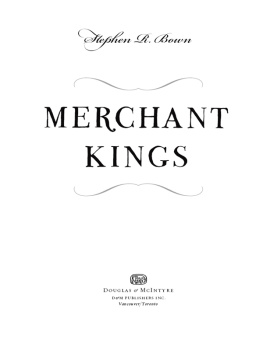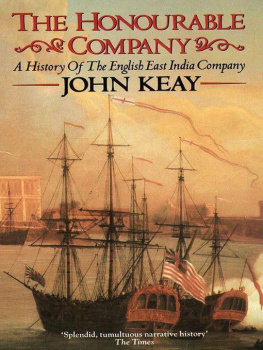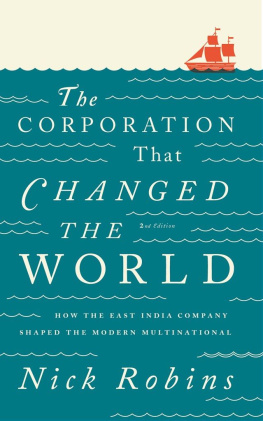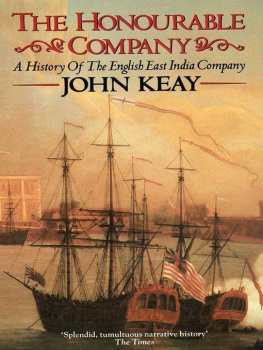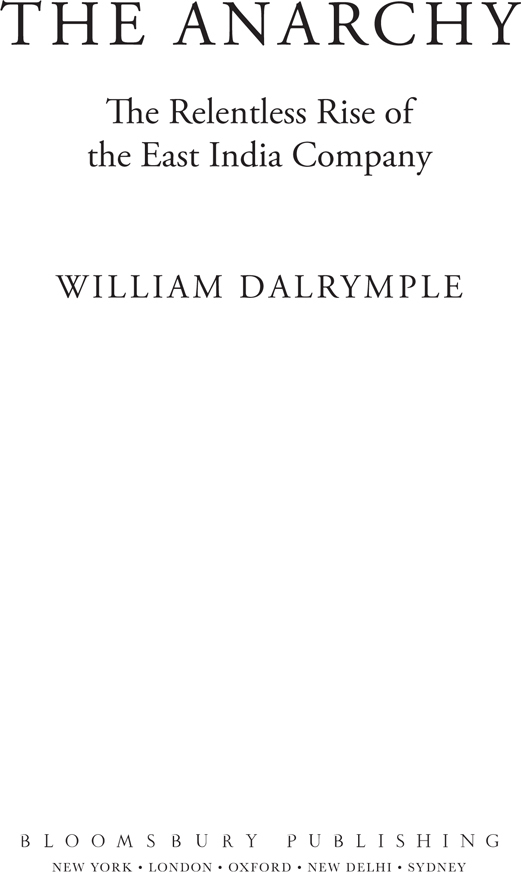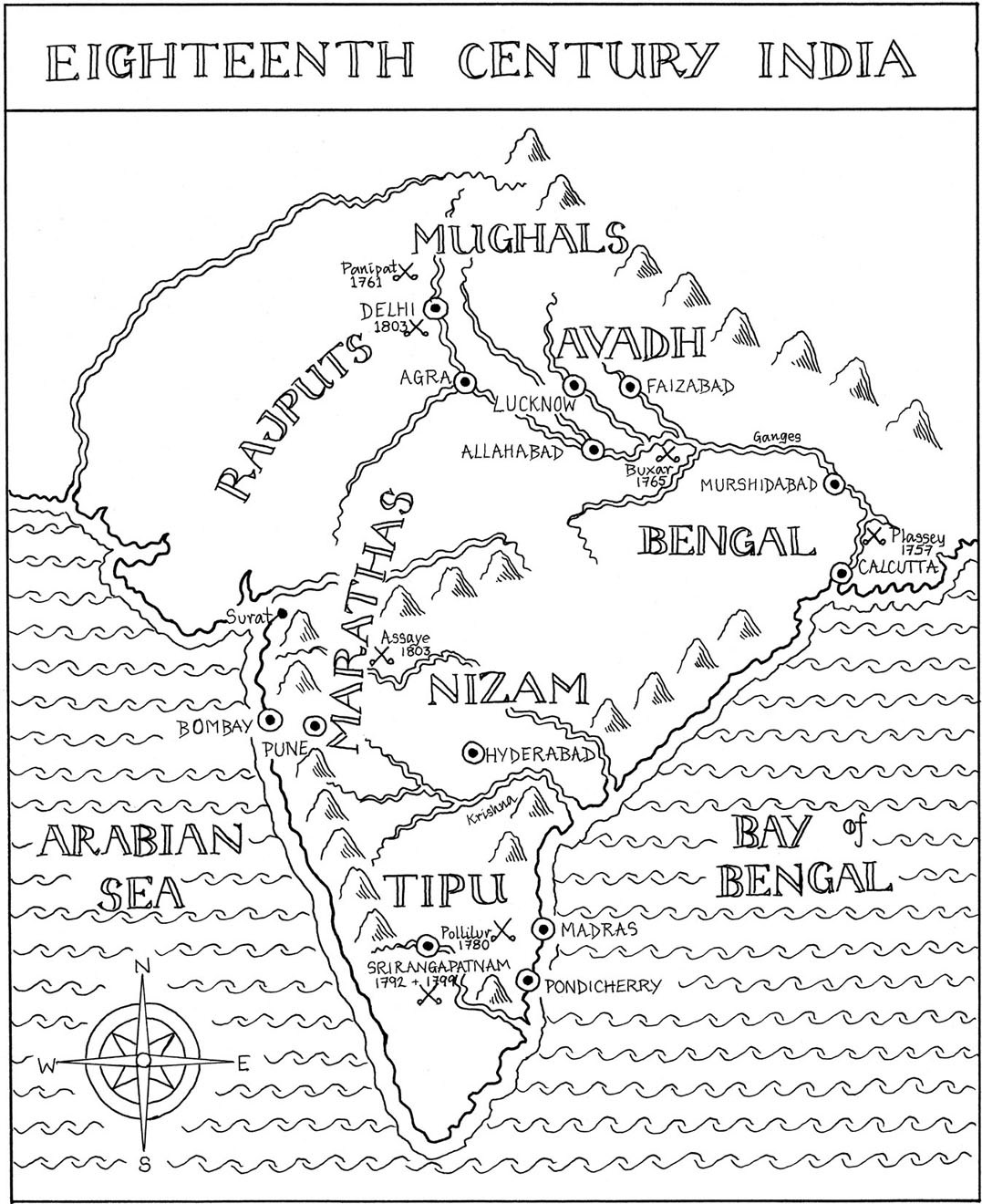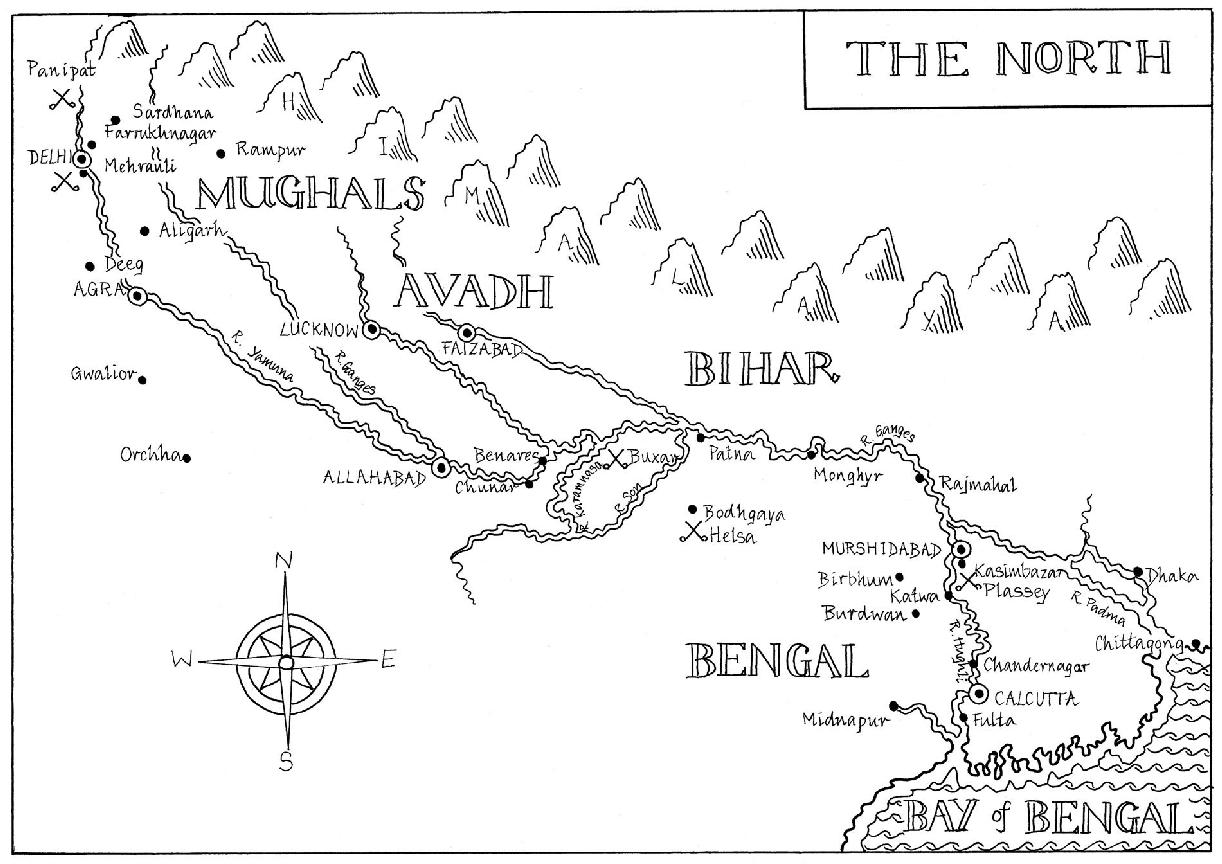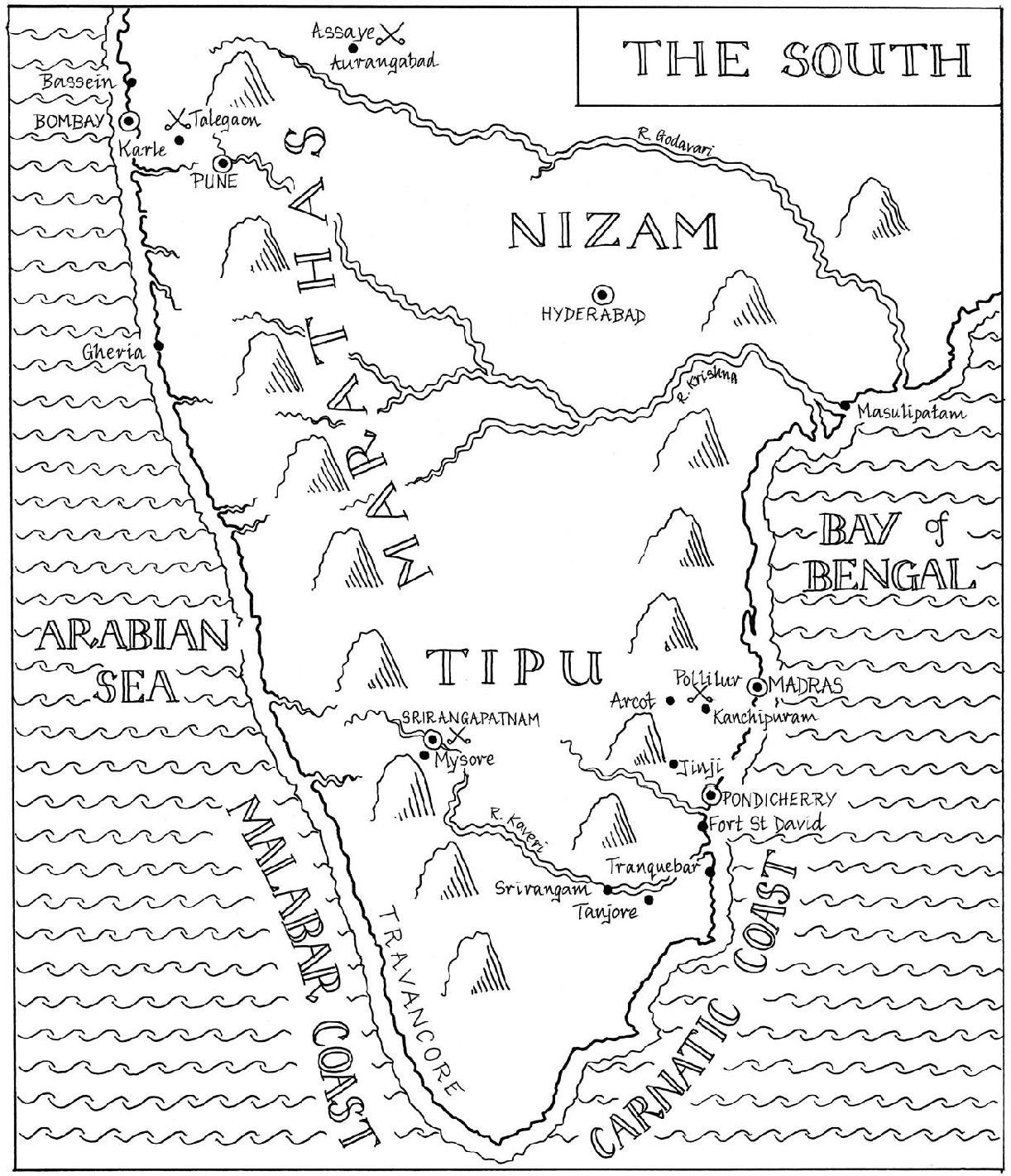THE ANARCHY
BY THE SAME AUTHOR
In Xanadu: A Quest
City of Djinns: A Year in Delhi
From the Holy Mountain: A Journey in the Shadow of Byzantium
The Age of Kali: Indian Travels and Encounters
White Mughals: Love and Betrayal in Eighteenth-Century India
Begums, Thugs & White Mughals: The Journals of Fanny Parkes
The Last Mughal: The Fall of a Dynasty, Delhi 1857
Nine Lives: In Search of the Sacred in Modern India
Return of a King: The Battle for Afghanistan
Princes and Painters in Mughal Delhi, 17071857
(with Yuthika Sharma)
The Writers Eye
The Historians Eye
Koh-i-Noor: The History of the Worlds Most Infamous Diamond
(with Anita Anand)
Forgotten Masters: Indian Painting for the East India Company 17701857
Contents
A commercial company enslaved a nation comprising two hundred million people.
Leo Tolstoy, letter to a Hindu, 14 December 1908
Corporations have neither bodies to be punished, nor souls to be condemned, they therefore do as they like.
Edward, First Baron Thurlow (17311806), the Lord Chancellor during the impeachment of Warren Hastings
1. THE BRITISH
Robert Clive, 1st Baron Clive
172574
East India Company accountant who rose through his remarkable military talents to be Governor of Bengal. Thickset, laconic, but fiercely ambitious and unusually forceful, he proved to be a violent and ruthless but extremely capable leader of the Company and its military forces in India. He had a streetfighters eye for sizing up an opponent, a talent at seizing the opportunities presented by happenchance, a willingness to take great risks and a breathtaking, aggressive audacity. It was he who established the political and military supremacy of the East India Company in Bengal, Bihar and Orissa, and laid the foundations for British rule in India.
Warren Hastings
17321818
Scholar and linguist who was the first Governor of the Presidency of Fort William, the head of the Supreme Council of Bengal and the de facto first Governor General of India from 1773 to 1785. Plain-living, scholarly, diligent and austerely workaholic, he was a noted Indophile who in his youth fought hard against the looting of Bengal by his colleagues. However his feud with Philip Francis led to him being accused of corruption and he was impeached by Parliament. After a long and very public trial he was finally acquitted in 1795.
Philip Francis
17401818
Irish-born politician and scheming polemicist, thought to be the author of The Letters of Junius , and the chief opponent and antagonist of Warren Hastings. Wrongly convinced that Hastings was the source of all corruption in Bengal, and ambitious to replace him as Governor General, he pursued Hastings from 1774 until his death. Having failed to kill Hastings in a duel, and instead receiving a pistol ball in his own ribs, he returned to London where his accusations eventually led to the impeachment of both Hastings and his Chief Justice, Elijah Impey. Both were ultimately acquitted.
Charles Cornwallis, 1st Marquess Cornwallis
17381805
Having surrendered British forces in North America to a combined American and French force at the Siege of Yorktown in 1781, Cornwallis was recruited as Governor General of India by the East India Company to stop the same happening there. A surprisingly energetic administrator, he introduced the Permanent Settlement, which increased Company land revenues in Bengal, and defeated Tipu Sultan in the 1782 Third Anglo-Mysore War.
Richard Colley Wellesley, 1st Marquess Wellesley
17601842
Governor General of India who conquered more of India than Napoleon did of Europe. Despising the mercantile spirit of the East India Company, and answering instead to the dictates of his Francophobe friend Dundas, President of the Board of Trade, he used the East India Companys armies and resources successfully to wage the Fourth Anglo-Mysore War, which ended with the killing of Tipu Sultan and the destruction of his capital in 1799, then the Second Anglo-Maratha War, which led to the defeat of the armies of both Scindia and Holkar in 1803. By this time he had expelled the last French units from India and given the East India Company control of most of the subcontinent south of the Punjab.
Colonel Arthur Wellesley
17691852
Governor of Mysore and Chief Political and Military Officer in the Deccan and Southern Maratha Country, he helped defeat the armies of Tipu in 1799 and those of the Marathas in 1803. Later famous as the Duke of Wellington.
Gerald, 1st Viscount Lake
17441808
Lord Lake, who liked to claim descent from the Arthurian hero Lancelot of the Lake, was not a man who admired diplomacy: Damn your writing, he is alleged to have cried at an army bookkeeper. Mind your fighting! Although sixty years old, and a veteran of the Seven Years War and the American War of Independence, where he fought against Washington at Yorktown, he was famous for his boyish charm and immense energy, often rising at 2 a.m. to be ready to lead the march, blue eyes flashing. He was Wellesleys very capable Commander in Chief and in 1803 was put in charge of defeating the Maratha armies of Hindustan in the northern theatre of operations.
Edward Clive, 1st Earl of Powis
17541839
Son of Robert Clive (Clive of India), he was the notably unintelligent Governor of Madras.
2. THE FRENCH
Joseph-Franois Dupleix
16971764
Governor General of the French establishments in India, who lost the Carnatic Wars in southern India to the young Robert Clive.
Michel Joachim Marie Raymond
175598
Mercenary commander of the French Battalion in Hyderabad.
General Pierre Cuiller-Perron
17551834
Perron was the son of a Provenal weaver who succeeded the far more capable Benot de Boigne as Commander of Scindias regiments. He lived with his troops a hundred miles to the south-east of Delhi in the great fortress of Aligarh, but in 1803 betrayed his men in return for a promise by the Company to let him leave India with his life savings.
3. THE MUGHALS
Alamgir Aurangzeb
16181707
Charmless and puritanical Mughal Emperor, whose overly ambitious conquest of the Deccan first brought Mughal dominions to their widest extent, then led to their eventual collapse. His alienation of the Empires Hindu population, and especially the Rajput allies, by his religious bigotry accelerated the collapse of the Empire after his death.
Muhammad Shah Rangila
170248
Effete Mughal aesthete whose administrative carelessness and lack of military talent led to his defeat by the Persian warlord Nader Shah at the Battle of Karnal in 1739. Nader Shah looted Mughal Delhi, taking away with him the Peacock Throne, into which was embedded the legendary Koh-i-Noor diamond. He returned to Persia, leaving Muhammad Shah a powerless king with an empty treasury and the Mughal Empire bankrupt and fractured beyond repair.

